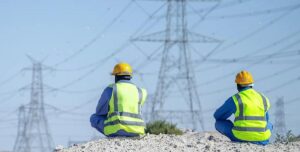The Current Landscape of the Global Energy Industry
The global energy industry is undergoing significant turbulence, grappling with short-term uncertainties stemming from political and economic instability. Insights from DNV’s latest Energy Industry Insights survey reveal a complex picture: while immediate challenges loom large, a long-term optimism appears to be anchored in technological advancements and the global push for decarbonization.
Insights from the Energy Professionals
In its 15th edition, the DNV survey captures perspectives from over 1,100 senior energy professionals worldwide. Alarmingly, only 55% believe that the energy transition is accelerating—a precipitous decline from 72% in 2023 and 79% in 2022. This drop reflects growing skepticism about the pace and efficacy of transformative initiatives.
Concerns About Social Impacts
A notable finding is the apprehensions regarding the social ramifications of the energy transition. A slim majority, 51%, express concerns that sustainable energy shifts could adversely impact vulnerable communities. Key risks identified include economic displacement, unequal distribution of benefits, and prohibitively high costs, underscoring the necessity for viable, affordable clean energy technologies.
The Financial Landscape
As the market battles uncertainty, clean energy developers face grim realities—many are worried about missing revenue and profit targets. Funding for energy projects has declined, with most professionals delaying investment decisions or opting for smaller initiatives. Confidence in achieving revenue goals has plummeted, with only 50% expressing optimism, and a mere 43% hopeful about profits. This stark contrast to earlier years signals a cautious approach driven by geopolitical tensions and economic instability.
The Role of Digitalization
Despite this environment of caution, digitalization remains a focal point for a systemic transition to renewable energy. Nearly two-thirds of respondents assert that a "whole systems approach" will necessitate comprehensive digital infrastructure. Investment in digital technologies is proving resilient, highlighting a pathway forward even amid constrained financial prospects.
Innovative technologies like AI are gaining traction, yet aging infrastructure remains a pivotal challenge, with 75% of power sector professionals citing outdated power grids as a significant barrier. An overwhelming 96% urgently call for grid modernization to address these impediments.
Urgency for Action
Ditlev Engel, CEO of DNV Energy Systems, emphasizes the urgency of accelerating efforts for a successful energy transition. He notes, “The path to a cleaner, more sustainable energy future is inherently complex and uneven, but delay is not an option.” Immediate and coordinated actions are critical to maintain momentum and pursue the long-term vision of a resilient, low-carbon energy system.
Navigating Future Challenges
As the industry grapples with these complexities, the need for strategic navigation becomes even more crucial. Geopolitical instability, trade disputes, and economic uncertainties present substantial challenges that threaten progress. Nonetheless, the focus on a long-term vision remains steadfast as industry leaders rally behind a commitment to build an affordable and sustainable energy future that meets global demands.
For comprehensive analyses and in-depth insights on the energy industry that align with your investment strategies, stay tuned to Extreme Investor Network—your guide to navigating the complexities of finance in these transformative times.

